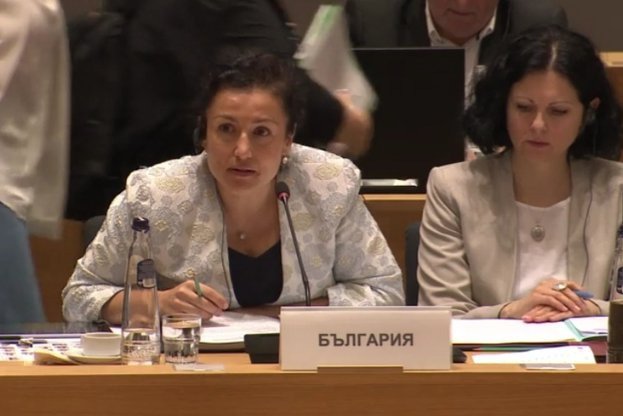
Coupled support is one of the priorities for Bulgaria in the Common Agricultural Policy Reform (2021-2027). It is an instrument of ensuring predictability in the levels of farmers’ income, preventing price price fluctuations and market uncertainty. This is what the Minister of Agriculture, Food and Forestry Desislava Taneva said during the meeting of the EU Agriculture and Fisheries Council in Luxembourg. According to her, despite the current amendment of the draft Strategic plan regulation for the maintaining of the today’s financial levels of the coupled support (13%+2%), Bulgaria's position is that there should be greater ambition to accept higher levels of this type of support. This is required due to the use of a larger financial resource which will have a positive effect on the rural development, job maintenance and job creation.
Both coupled and transitional national supports are interlinked. These are schemes that guarantee the social and economic sustainability of farmers engaged in the Livestock-breeding, Fruit and Vegetables farming sectors. Combined with a high environmental ambition, they lead to the full implementation of the objectives of the Common Agricultural Policy (CAP).
In terms of ecosystems, Bulgaria's position has so far been in favor of voluntary implementation. The Minister of Agriculture explained that we could be flexible and support the obligation of ecosystems for Member States. The aim is to achieve environmental sustainability, but we also insist on reaching a more ambitious compromise on issues that lead to economic and social sustainability of the sector. Minister Taneva was categorical that it is necessary to continue discussing the conditions for small farmers by taking into account their vulnerability. It is important for the policy in Bulgaria to maintain the existing approach to exclude small farms from the conditionality control.
With regard to the interventions in the sector, Bulgaria appreciates the efforts to find a compromise with respect to determining the ecological threshold for fruit and vegetables producer organizations. This ambitious ecological approach is not effective for the low-turnover producer organizations, typical for Bulgaria. The reason is that it will reduce the interest in association in the country and therefore the current threshold of 10% needs to be maintained.